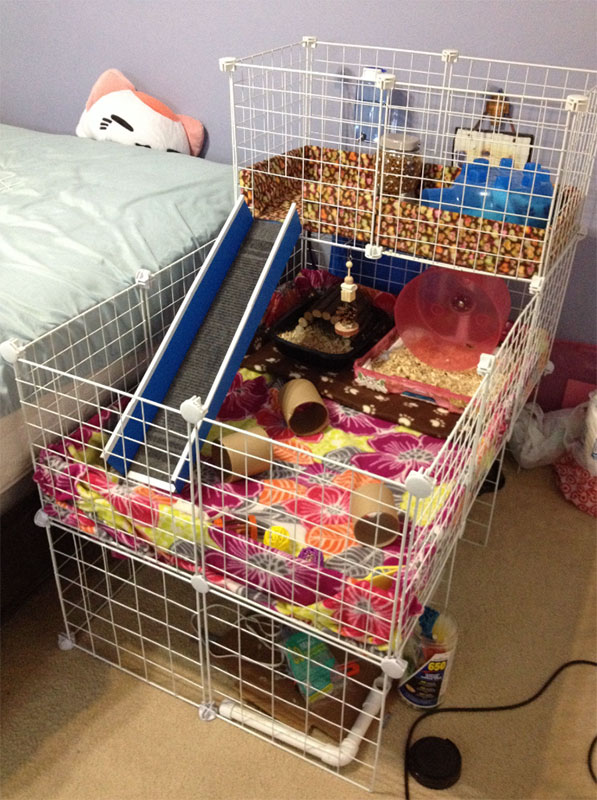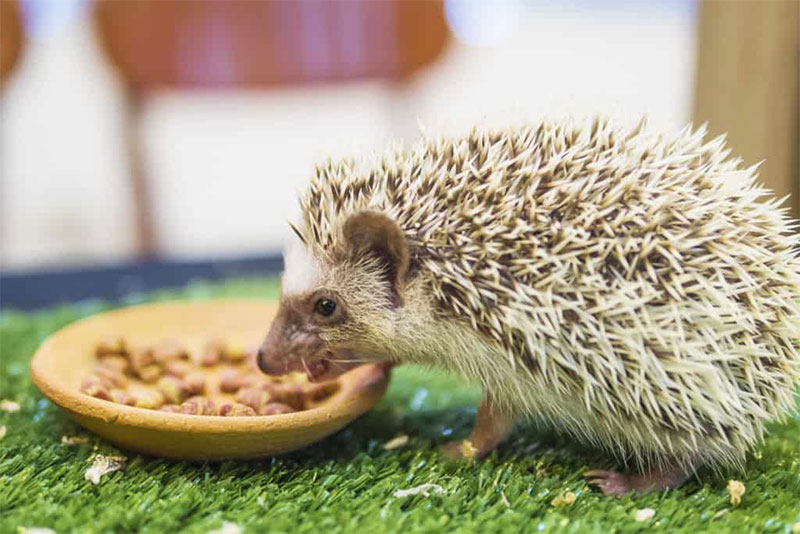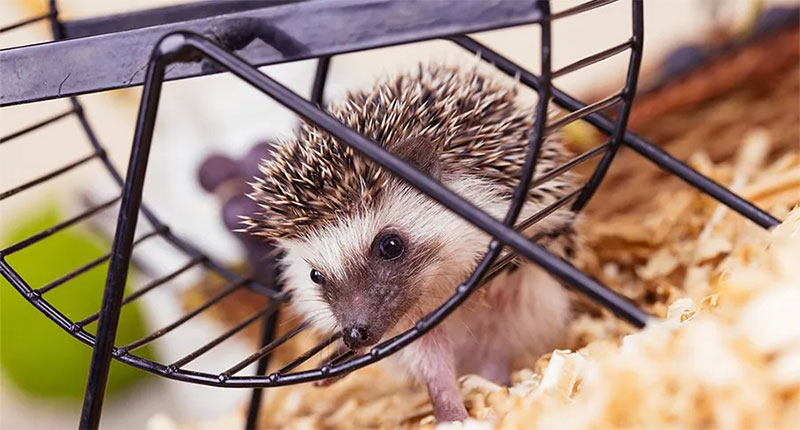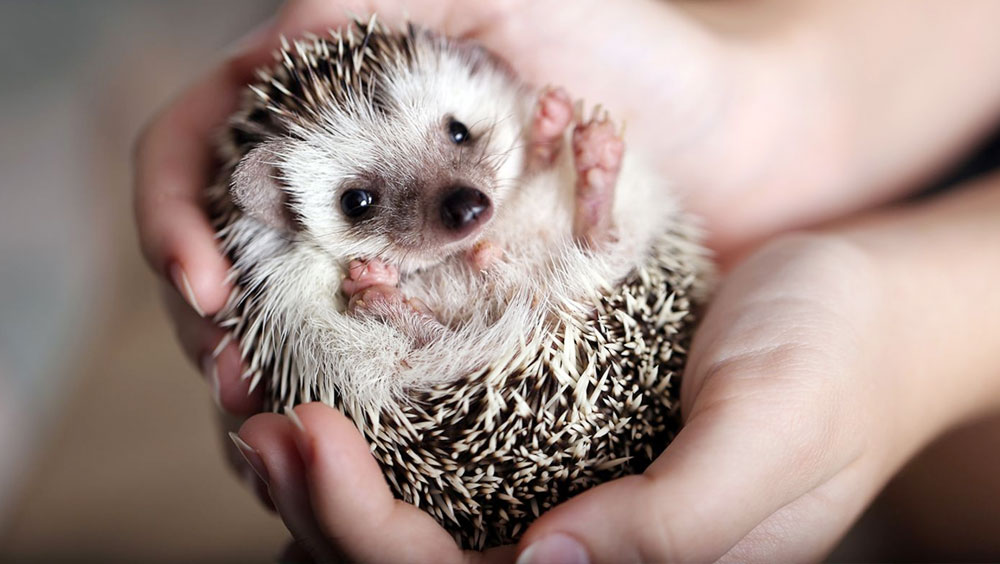Hedgehogs are one of the most popular 'pocket pets' in the U.S., thanks to their adorable dispositions and nocturnal natures. While considered low-maintenance, hedgehogs still require special care to ensure they thrive in their environments.
Housing Your Pet Hedgehog

Your hedgehog's cage should be spacious enough to ensure they can roam around freely and comfortably without restrictions. Rabbit and guinea pig cages are suitable for hedgehogs, but it's important to only purchase cages with solid bottoms. Cages with wire-grate bottoms can put your hedgehog at risk for injuring their legs or toenails if they get stuck in the wire.
For additional softness, line the bottom of the cage with soft material such as recycled paper shavings or a fleece cage liner. The environmental temperature of your hedgehog's cage should remain between 70 and 80 degrees, and this can be achieved by keeping the cage away from direct sunlight and drafty or cold spots.
Hedgehogs prefer to sleep in enclosed, secure environments, and you can create this for your pet by placing a baby blanket or small piece of soft fabric in their cage. Your hedgehog will naturally wrap themselves up in their 'cocoon' when they go to sleep. Pet supply stores also carry weighted blankets, 'sleeping huts', and tiny sleeping bags specifically designed for hedgehogs.
Your Hedgehog's Healthy Diet

Obesity and digestive problems are common issues that affect hedgehogs, and ensuring your furry friend enjoys a healthy, balanced diet can be highly beneficial to their overall wellness. Hedgehogs eat insects such as mealworms, waxworms, and crickets, and you can also serve them small amounts of cooked chicken. Hedgehog kibble is available at most major pet supply stores, and a good rule of thumb is to purchase kibble with no more than 20 percent fat content and at least 30 percent protein.
Non-starchy vegetables such as tomatoes and green beans are suitable for hedgehogs, and they add a bit of colorful variety to their diets. Hedgehogs shouldn't eat dried fruits, but they're able to digest soft fruits such as bananas and melons. Adult hedgehogs are tiny animals, so it's imperative to remember that a little food goes a long way. The recommended feeding schedule for adult hedgehogs is 2 tablespoons of kibble and 1 teaspoon of fruit, vegetables, protein, and insects per day.
Ensuring Proper Exercise and Keeping Your Hedgehog Entertained

Hedgehogs enjoy their playtime, and they love to run when in the wild. You can easily recreate their natural running environment by placing an exercise wheel in the cage. Hedgehog exercise wheels should have flat running surfaces to prevent injury, and it's important that the wheels are at least 12 inches in diameter, so they have plenty of room to move. PVC tubing, toilet paper tubes, and paper towel tubes make the perfect hiding places for your hedgehog. They also love to play with small plastic balls, as this stimulates the act of foraging.


